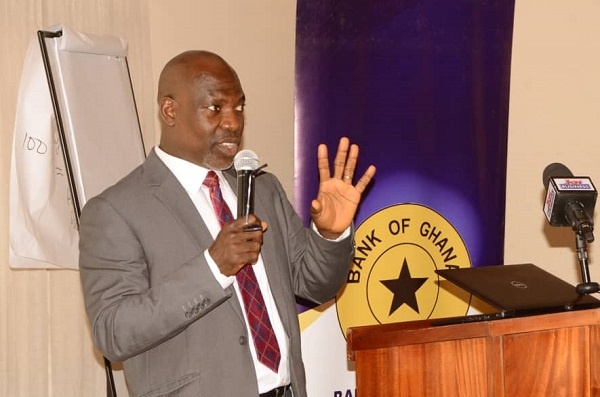Mr Augustine Donkor, the Head, Conduct Supervision Unit, Bank of Ghana (BoG), has reiterated that a next of kin does not automatically inherit one’s assets or money with a bank, upon his or her demise.
He noted that in Ghana, a common misconception about the next of kin was that they automatically inherit one’s assets or money upon the person’s death, which was false.
The next of kin is contacted in case of an emergency or a blood relative who inherits someone’s estate without a will upon the person’s demise.
Speaking to the media in Accra at a workshop to review the implementation of the National Financial Education Campaign, Mr Donkor said contrary to common beliefs, the next of kin did not automatically gain legal rights to the deceased account holder’s funds.
The workshop, which was organised by the Ministry of Finance, was attended by stakeholders from the banking and finance sectors such as the Ministry of Finance, the BoG, and the Securities Exchange Commission (SEC) among other regulators.
As part of efforts to bolster the financial capability of Ghanaians and promote financial inclusion, the Government, in collaboration with the financial sector regulators, has been implementing the National Financial Education campaign under the ongoing Ghana Financial Sector Development Project.
Mr Donkor said the primary role of the next of kin in the banking sector was to assist institutions in reaching the account holder, especially in cases of dormant accounts or for the necessary updates.
He said even if a next of kin was nominated, legal processes, including wills or letters of administration, might determine who had access to the funds.
Financial institutions were mandated by law to follow specific procedures when an account becomes dormant, he said, adding that in such cases, attempts were made to contact the account holder.
He said if unsuccessful, the institution might approach the next of kin to facilitate communication and that, however, access to funds was subject to legal scrutiny, ensuring adherence to the account holder’s wishes.
Touching on financial literacy and consumer protection, Mr Donkor reiterated the crucial role consumers played in the financial sector and that financial education was part of consumer protection measures to empower individuals to make informed decisions.
He noted that the Central Bank recognised the importance of addressing misconceptions about financial matters, such as understanding the roles of different institutions and the avenues available for complaint resolution.
Mr Donkor underscored the importance of accurate information about next of kins to contribute to robust financial ecosystems and pledged the BoG’s commitment to ensuring a well-informed and confident populace in financial matters.
Madam Patience Arko-Boham, the Head, Pensions and Insurance Unit, Ministry of Finance, said the objective of the National Financial Education campaign was to equip consumers of financial services for their unique socioeconomic and environmental conditions.
GNA





